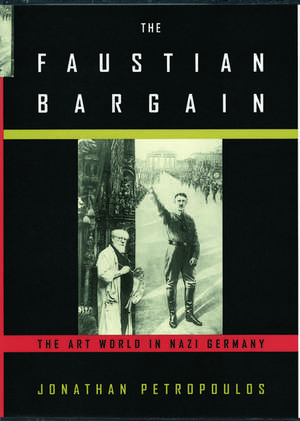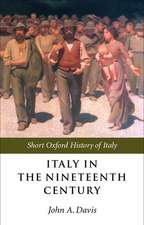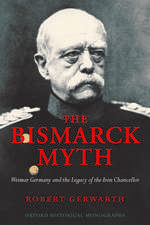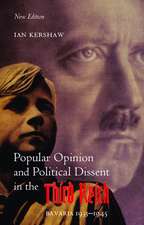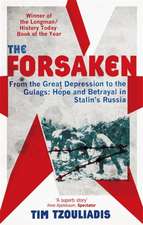The Faustian Bargain: The Art World in Nazi Germany
Autor Jonathan Petropoulosen Limba Engleză Hardback – 8 noi 2002
Preț: 350.88 lei
Preț vechi: 394.78 lei
-11% Nou
Puncte Express: 526
Preț estimativ în valută:
67.14€ • 70.29$ • 55.55£
67.14€ • 70.29$ • 55.55£
Carte tipărită la comandă
Livrare economică 25-31 martie
Preluare comenzi: 021 569.72.76
Specificații
ISBN-13: 9780195129649
ISBN-10: 0195129644
Pagini: 416
Ilustrații: 25 halftones
Dimensiuni: 165 x 243 x 36 mm
Greutate: 0.77 kg
Editura: Oxford University Press
Colecția OUP USA
Locul publicării:New York, United States
ISBN-10: 0195129644
Pagini: 416
Ilustrații: 25 halftones
Dimensiuni: 165 x 243 x 36 mm
Greutate: 0.77 kg
Editura: Oxford University Press
Colecția OUP USA
Locul publicării:New York, United States
Recenzii
An account of some of the great minds of the formidable German intelligentsia who nevertheless plummeted to the depths of complicity, profiteering, and racism.... His unprecedented interviews with members of the postwar Nazi network, as well as his thorough mining of the judicial records of the late 1940s, enable Petropoulos to reconstruct not just the individual experiences of these men, but also the gray moral universe in which they build their careers... The Faustian Bargain deserves careful study by anyone seeking to understand the rise of the Nazi art bureaucracy.
This is a balanced, deft, and clear-eyed study of the way the art world functioned in Nazi Germany and of the people who operated in it. Petropoulos writes smoothly, and his assessment of the individuals he examines and the choices they made is consistently fair and to the point. In short, a highly readable and valuable book.
Based on exhaustive archival research, The Faustian Bargain is the only book to reveal the complex web of complicity linking art world professionals and the Nazi elite. It is a fascinating look not just at how these individuals collaborated with the Third Reich, but at how they were denazified and rehabilitated after the war.
Spotlighting five groups
Petropoulos's very interesting work examines, in considerable depth, some of the major personalities that were behind both extensive looting of art treasures and also the promotion of pronationalistic works.
This is a balanced, deft, and clear-eyed study of the way the art world functioned in Nazi Germany and of the people who operated in it. Petropoulos writes smoothly, and his assessment of the individuals he examines and the choices they made is consistently fair and to the point. In short, a highly readable and valuable book.
Based on exhaustive archival research, The Faustian Bargain is the only book to reveal the complex web of complicity linking art world professionals and the Nazi elite. It is a fascinating look not just at how these individuals collaborated with the Third Reich, but at how they were denazified and rehabilitated after the war.
Spotlighting five groups
Petropoulos's very interesting work examines, in considerable depth, some of the major personalities that were behind both extensive looting of art treasures and also the promotion of pronationalistic works.
Notă biografică
As of September 1, 1999, Jonathan Petropoulos will be a Professor of History at Claremont McKenna College in Southern California. Considered one of the preeminent experts on Nazi art plunderers, he is the Research Director for the Presidential Advisory Commission on Holocaust Assets in the United States and the author of Art and Politics in the Third Reich. Presently a resident of Baltimore, he will soon relocate to Pasadena, California.
